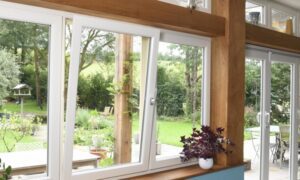The concept of living off-grid, mostly associated with survivalists and remote cabins, is now a mainstream movement. Innovations, energy security, and environmental consciousness have forced many individuals and communities to explore ways to reduce their independence on the conventional power grid.
A leading force in this shift is the introduction of solar generators, which have revolutionized energy independence. These generators convert sunlight and store it for later use. This has made it easier for individuals seeking a self-sufficient lifestyle to embrace off-grid living.
The Benefits
These generators are crucial for off-grid living. Solar is beneficial for remote living in many ways. For starters, this is a sustainable and renewable energy source. Unlike the finite fossil fuels that degrade the environment, solar energy is clean and available in plenty. Solar powered generators generate electricity without producing harmful gasses. This reduces footprint and shows a commitment to a sustainable lifestyle.
Solar generators also offer unmatched energy independence that can’t be compared to other energy sources. Generating and storing your electricity means off-grid residents don’t have to rely on utility companies susceptible to outages and fluctuations. This independence is especially valuable in remote areas with limited or non-existent access to the national grid.
Similarly, while buying a solar generator and other systems may be costly, the long-term cost-savings of solar energy are significant. Once installed, these generators need minimum maintenance. Unlike traditional gas-powered options, these generators have no fuel costs. The savings on fuel and energy bills offset the upfront costs over time.
Other significant advantages of installing solar generators are versatility and scalability. Homeowners can customize these systems to meet different energy needs. You can power small electronic devices and provide electricity for your entire home and neighbors. This flexibility allows off-grid residents to scale their systems according to their budgets and needs.
The Challenges and Considerations
Even though solar generators benefit off-grid living, they come with various challenges and considerations that you should evaluate. The most notable issue is the initial installation cost. High-quality panels, inverters, and batteries are expensive, especially for large setups. Even if the long-term savings on energy bills can offset the initial costs, the upfront investment is prohibitive.
Secondly, solar generators primarily rely on the sun to produce electricity. This makes them fully reliant on the prevailing weather conditions. Their efficiency significantly reduces in areas with inconsistent sunlight, heavy clouds, and frequent storms. This variability is a significant challenge for off-grid living, where reliable power is essential.
Similarly, solar generators have energy storage limitations. While battery technologies have improved and allow greater storage capacity, they are still limited. Modern batteries are expensive and their storage capacities aren’t sufficient for long periods, especially for homes with high energy demands. Besides, solar batteries degrade over time, reducing their efficiency and eventually requiring replacement. This can prove costly to some homeowners.
Endnote
Solar generators undeniably play an important role in the increasing embracement of off-grid living. More people will likely embrace these benefits with advancing technologies and increasing sustainability awareness. Households aside, communities have also begun exploring the possibilities of off-grid living powered by solar energy. The establishment of micro-grids that operate independently has become popular in remote areas.
Read More From Techbullion And Businesnewswire.com



































